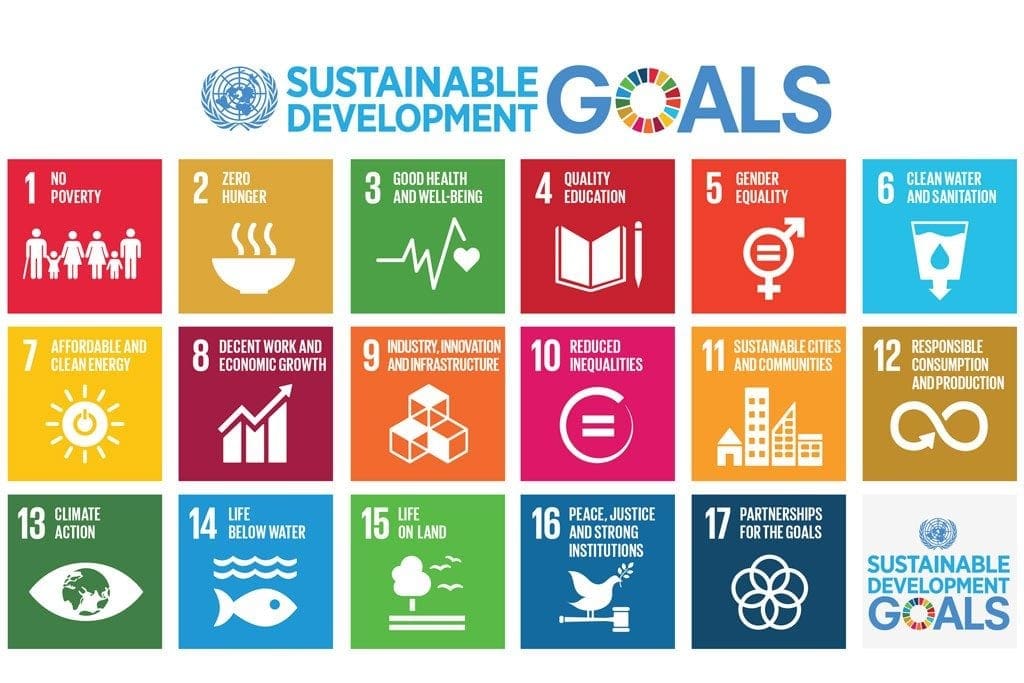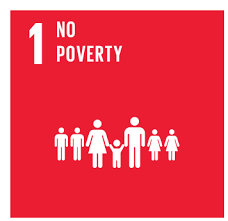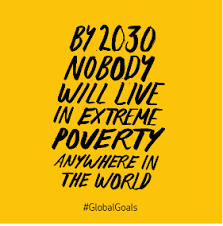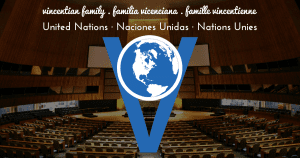Blessed Rosalie Rendu said to Blessed Frederic Ozanam and companions,
“Hunt down poverty in order to give humanity its dignity.”
In 2015, the United Nations ratified 17 Sustainable Development Goals, calling on the world to “leave no one behind.” The challenge continues through the generations. While the 17 SDGs are interlinked, the first goal (SDG 1) is to “end poverty in all its forms.” This is central to our Vincentian values.

WHAT IS EXTREME POVERTY?
At the time the SDGs were approved in September, 2015, persons living in extreme poverty were considered those who earned less than $1.25 per day. According to the UN, there were 836 million persons living in extreme poverty in 2015, down from 1.9 billion in 1990.
However, The World Bank set that poverty indicator in 2005. Last October, it raised the rate to $1.90 per day, which, at today’s prices, would have the same value as earning $1.25 in 2005.
More than 40 per cent of Sub-Saharan Africa’s population lives in extreme poverty. The nations with the lowest Gross Domestic Product are almost entirely from Africa. According to UN University article, “Can We (9/9/15) End Extreme Poverty by 2030?,” to end extreme poverty by 2030, we will need higher economic growth than in the past and more growth that disproportionally benefits the poor (in Sub-Saharan Africa, in particular).
Proportion of population living below 1.90 US dollars a day, 2002 and 2012 (percentage)
From: UN Department of Economic and Social Affairs
| Region | 2002 | 2012 |
| Sub-Saharan Africa | 57 | 43 |
| Oceania | 48 | 30 |
| Southern Asia | 36 | 15 |
| Caucasus and Central Asia | 33 | 12 |
| South-Eastern Asia | 21 | 8 |
| Eastern Asia | 32 | 6 |
| Latin America and the Caribbean | 13 | 6 |
| Developed regions | 1.2 | 0.1 |
| Developing regions | 33 | 15 |
| World | 26 | 13 |
Note: The regional estimates for Northern Africa and Western Asia could not be calculated because the available data do not have sufficient population coverage.
POVERTY FACTORS GREATER THAN FINANCE
The UN recognizes that poverty is much bigger than numbers alone. In addition to lack of income, it is fueled by limited access to education and other basic services, social discrimination and exclusion as well as the lack of participation in decision-making. It causes malnutrition, hunger, and more.
The UN Development Program (UNDP), therefore, in 2010, together with the Oxford Poverty & Human Development Initiative created a Multidimensional Poverty Index (MPI) which measures deprivations at the household level across education, health and standards of living. Things like child mortality, nutrition, school attendance, cooking fuel, toilets, water, floors, electricity, nutrition, and assets.
According to the UN, a person is multidimensionally poor if they are deprived in one third or more of the weighted indicators. About 1.5 billion people in the 161 countries covered—- 29% of their entire population—- lived in multidimensional poverty between 2005 and 2014. (hdr.undp.org).
SOCIAL PROTECTION FLOORS
Another key aspect of SDG1 (End poverty in all its forms) is the call for nationally appropriate social protection floors, which are social rights including access to necessary services such as health and education, housing, water, sanitation, and others.
Ten Countries With Lowest Gross Domestic Product (2015)
1. Somalia (lowest)
2. Central African Republic
3. Congo
4. Burundi
5. Liberia
6. Tokelau
7. Niger
8. Eritrea
9. Malawi
10. Guinea
(Note: other sources may list other nations)
GENDER EQUALITY
 SDG1 (End poverty in all its forms) further calls for equal rights among men and women to economic resources, basic services, ownership and control over land and property, inheritance, natural resources, new technology, and financial services. Throughout the world, gender inequality when it comes to land and other productive resources is intimately related to women’s poverty and exclusion, according to a 2013 report entitled, REALIZING WOMEN’S RIGHTS TO LAND AND OTHER PRODUCTIVE RESOURCES (at page 2).
SDG1 (End poverty in all its forms) further calls for equal rights among men and women to economic resources, basic services, ownership and control over land and property, inheritance, natural resources, new technology, and financial services. Throughout the world, gender inequality when it comes to land and other productive resources is intimately related to women’s poverty and exclusion, according to a 2013 report entitled, REALIZING WOMEN’S RIGHTS TO LAND AND OTHER PRODUCTIVE RESOURCES (at page 2).
POLICIES AND STRATEGIES
Systemic change is at the heart of the Sustainable Development Goals. To that end, SDG1 (End poverty in all its forms) also calls for pro-poor and gender-sensitive policies and strategies at all levels so as to accelerate the reduction of poverty. This requires directing world-wide resources to developing countries.
Building the resistance of persons living in poverty to climate-related events, and economic, social, and environmental shocks and disasters is also a focus of SDG1 (Ending poverty in all its forms)
COST OF ACHIEVING SDGS
Estimates of the cost to implement the SDGs vary. It could reach $5 to $7 trillion dollars.
WAYS TO ACHIEVE SDG 1
The SDGs call upon the entire world to unite. Governments, civil societies, the private sector, organizations, and individual persons must work together and collaborate towards a common goal. Persons living or working at the grass roots level perhaps know best how to end extreme poverty in their area. There are multiple opinions about ways to achieve SDG1, such as:
- End protracted crises (as in Syria, Sudan, and elsewhere)
- Reduce illicit financial flows (tax evasion, customs mispricing, questionable off-shore accounts, and more)
- Ensure countries meet their UN target of contributing 0.7 percent of gross national income (GDI) towards official development assistance (ODA)
- Require mandatory corporate responsibility
- Increase tax revenues
- End corruption
 UN Secretary General Ban Ki-Moon recently said that achieving the SDGs requires balanced, inclusive and sustainable economic growth. “The Addis Ababa Action Agenda, adopted in Ethiopia last year, provides a global framework for financing the 2030 Agenda implementation. It aligns all financing flows and policies with sustainable economic, social and environmental development,” Mr. Ban added.
UN Secretary General Ban Ki-Moon recently said that achieving the SDGs requires balanced, inclusive and sustainable economic growth. “The Addis Ababa Action Agenda, adopted in Ethiopia last year, provides a global framework for financing the 2030 Agenda implementation. It aligns all financing flows and policies with sustainable economic, social and environmental development,” Mr. Ban added.
“Implementing the 2030 Agenda will strengthen our collective ability to address short-term risks and build long-term resilience. This is why it is essential that sustainable development is fully integrated into a global macroeconomic policy framework,” Mr. Ban said.
Nelson Mandela said: “Like slavery and apartheid, poverty is not natural. It is man-made and it can be overcome and eradicated by the actions of human beings.
With that hope, let’s partner together to overcome extreme poverty, in the spirit of Rosalie and Frederic.








0 Comments